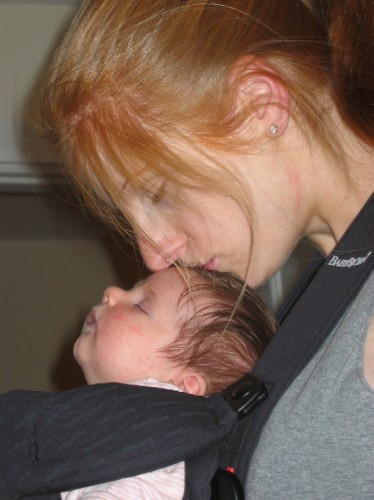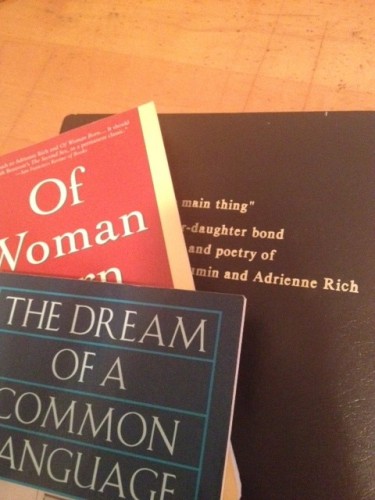Have you ever had the feeling that the universe is trying to tell you something? Well, I have. It happens with words and phrases I can’t stop thinking about or images and icons I can’t stop seeing. And other ways. My friend Elizabeth beautifully describes this exact phenomenon. She finds herself keenly – painfully, even – aware of the energy of strangers, a psychic tells her she is a spiritual warrior, she finds moths – a symbol of metamorphosis – everywhere, and she opens Mark Nepo’s Book of Awakening randomly (or not) onto a page titled “How to be a Spiritual Warrior.”
The meta-thing is, I felt that way reading Elizabeth’s post. Yes, yes, and yes. For one thing, Mark Nepo’s Book of Awakening is the only book that lives permanently on my bedside table. Everything she describes is intimately familiar to me, perhaps so close I never was able to put good, clear words around it. Luckily for me, Elizabeth can. She writes about reading Mark Nepo’s passage on how spiritual warriors have broken hearts, and my skin prickles and my eyes fill with tears. I’ve written about this exact thing before. But never this precisely or this beautifully:
I feel the energies of others so strongly because I am broken, my soul veined with deep fissures that allow their light and darkness to seep in through the cracks. It seems like a lot of freight of haul around with me. But there is a flip side. Mystery and wonder are at my fingertips, although I’ve never fully allowed them to enter those deep crevasses.
I knew that I was so open to the energy of others and so finely aware to the nuances of a situation because of my own brokenness, though I’d never quite heard it said as beautifully as Elizabeth does. That I am porous is a simple fact. The myriad ways that that trait manifests in my life and personality is something I’m still untangling and understanding. It occurred to me, suddenly, blindingly, as I read Elizabeth’s post, that instead of spending years trying to heal my brokenness, I ought to have instead spelunked into its caverns. Perhaps it is in those caverns that the glittering universe that I’ve only glimpsed is hidden.
The easily-accessible mystery and wonder that Elizabeth mentions, the “flip side” of our common brokenness, is familiar to me as well. Just last week I tweeted Shana Alexander’s quote: “We strain to renew our capacity for wonder, to shock ourselves into astonishment once again” with the caveat that I never have to strain. If anything, I often wish I could tamp down my own awareness, my predilection towards awe. It can be so sharp it cuts me, this constant noticing of life’s beauty.
I suppose this is just another circle in my orbit around the same questions, the echoing black hole in the center of my life. Each time, I tell myself, I move closer to understanding my own essential nature, the commingled dark and brightness of my deepest wound, more clearly. Thank you, Elizabeth.



